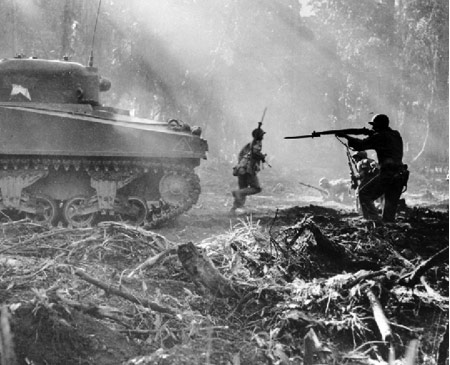THE FOUR LAWS OF WAR
[Ian] Morris believes that war consolidates diverse peoples. Conquest transforms differences into consensus. Such a progressive process of consolidation sets in motion a welcomed predetermined trajectory, As the millennia pass, governments and societies grow larger, fewer and stronger by their war-making. So war becomes less frequent until we arrive at our present --- and somewhat fated --- condition, in which we are more peaceful and richer than at any time in civilization's bloody past. Or at least for now.
There are four ironclad laws in Morris's thesis:" the bigger and stronger the government that emerges from war, the less likely its newly conquered subjects will fight incessantly among themselves. Second, unfortunately, war is both the "worst imaginable way" to create more peaceful societies, and, alas, "the only way that humans have found" to empower a larger government. Third, if war makes fewer and bigger governments, it also makes us richer. The fewer states, the fewer enemies of states, and thus the less need for defence, as human endeavor can be freed for more productive pursuits: "by creating larger societies, stronger governments, and greater security, war has enriched the world." Fourth and finally, we, the lucky last link in the millennia-long chain, are nearing the end of this inevitable arc of history.---Victor Davis Hanson in a review of
War! What Is It Good For?
The Role of Conflict in Civilization
From Primates to Robots
Profile Books
The TLS, 26 Septrmber 2014
